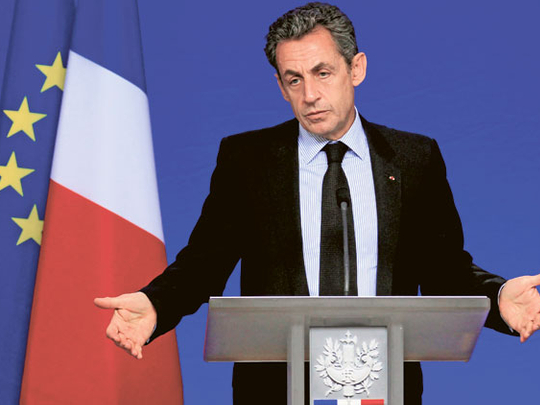
Beijing: The head of Europe's bailout fund sought financial support from China Friday to help resolve the bloc's debt crisis, saying that while no quick deal was in sight he was still confident Beijing would keep buying bonds issued by his fund.
Klaus Regling, chief executive of the European Financial Stability Facility (EFSF), was in Beijing for talks with Chinese officials a day after Eurozone leaders struck a hard-fought accord on the two-year crisis that nonetheless left major economies Italy and Spain under financial market pressure.
After the European summit in Brussels reached agreement in the early hours of Thursday, French President Nicolas Sarkozy immediately got on the phone to China to seek financial help, saying Beijing had "a major role to play".
No commitments
But despite a characteristically bullish sales pitch, the French leader did not appear to have received any specific commitments. European governments had announced an agreement under which private banks and insurers would accept 50 per cent losses on their Greek debt holdings in the latest bid to cut Athens' debt load to sustainable levels.
European leaders are now under pressure to finalise the details of the plan if they expect China and others to support it and Regling said he expected Beijing to continue buying bonds issued by the EFSF.
"We all know China has a particular need to invest surpluses," Regling told a Beijing news conference, referring to the country's $3.2 trillion of foreign exchange reserves, the world's biggest.
Regling said the bailout deal with Greece was an exceptional case that he did not believe would have to be repeated for other nations.
Many in financial markets are concerned that the fund is not big enough to cope if Italy and Spain are drawn deeper into the crisis.
France said investment by China would inspire confidence in the Eurozone.
"The reality is that China is the third largest shareholder in the International Monetary Fund, and if China via the IMF wants to participate — not by saving Greece or the euro — but by participating in investment, that is a gesture of confidence," French Finance Minister Francois Baroin said. "What is happening in Europe and creating instability is that public and private investors are pulling out," he told RMC radio.
Key aspects of the Euro-zone deal, including the mechanics of boosting the EFSF and providing Greek debt relief, have yet to be finalised. It is proving difficult to explain in the meantime and European officials were jeered by journalists at one briefing as they struggled to outline it clearly.
There are fears that the latest deal will fall apart like the last one, three months ago, that was also meant to draw a line under the troubles of the 12-year-old currency bloc.












